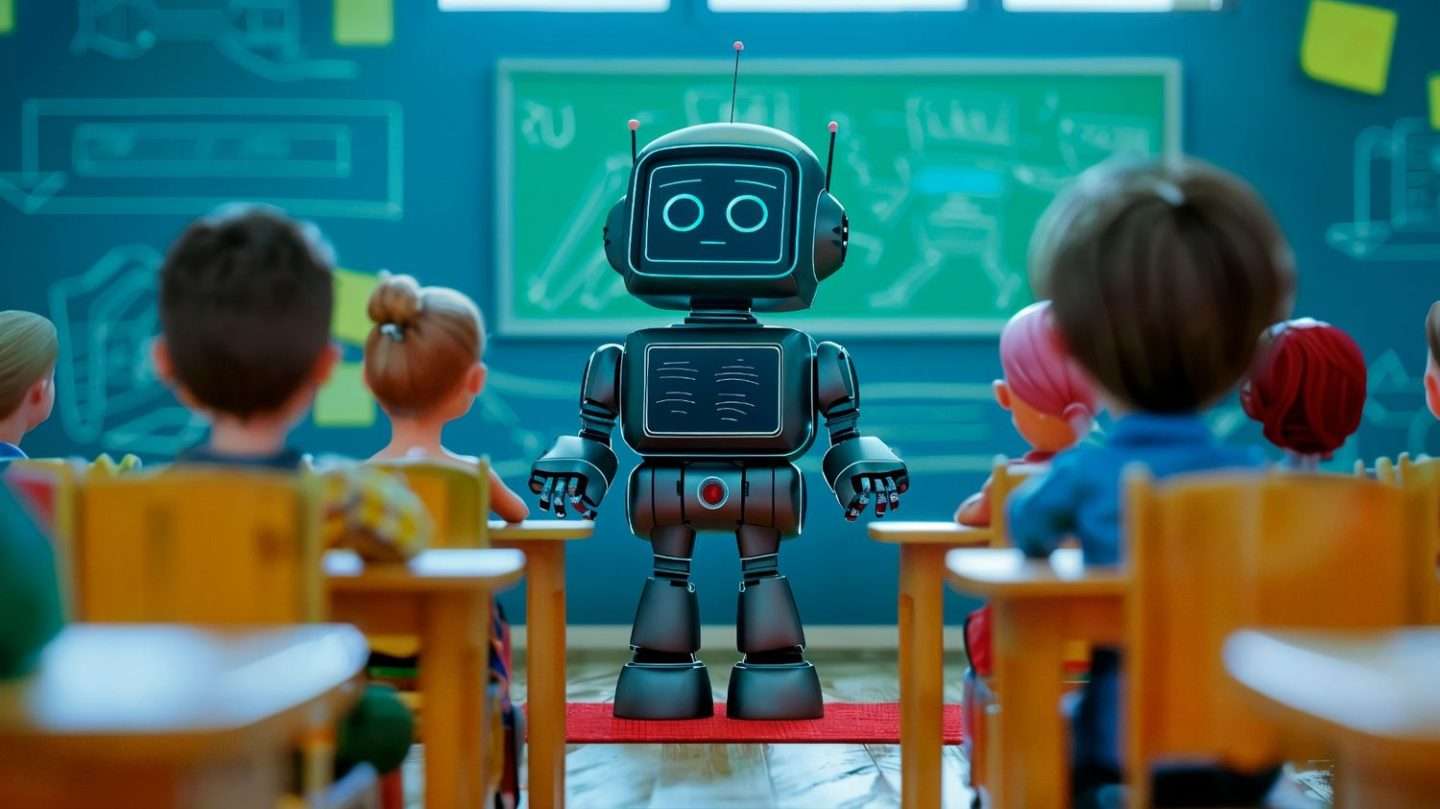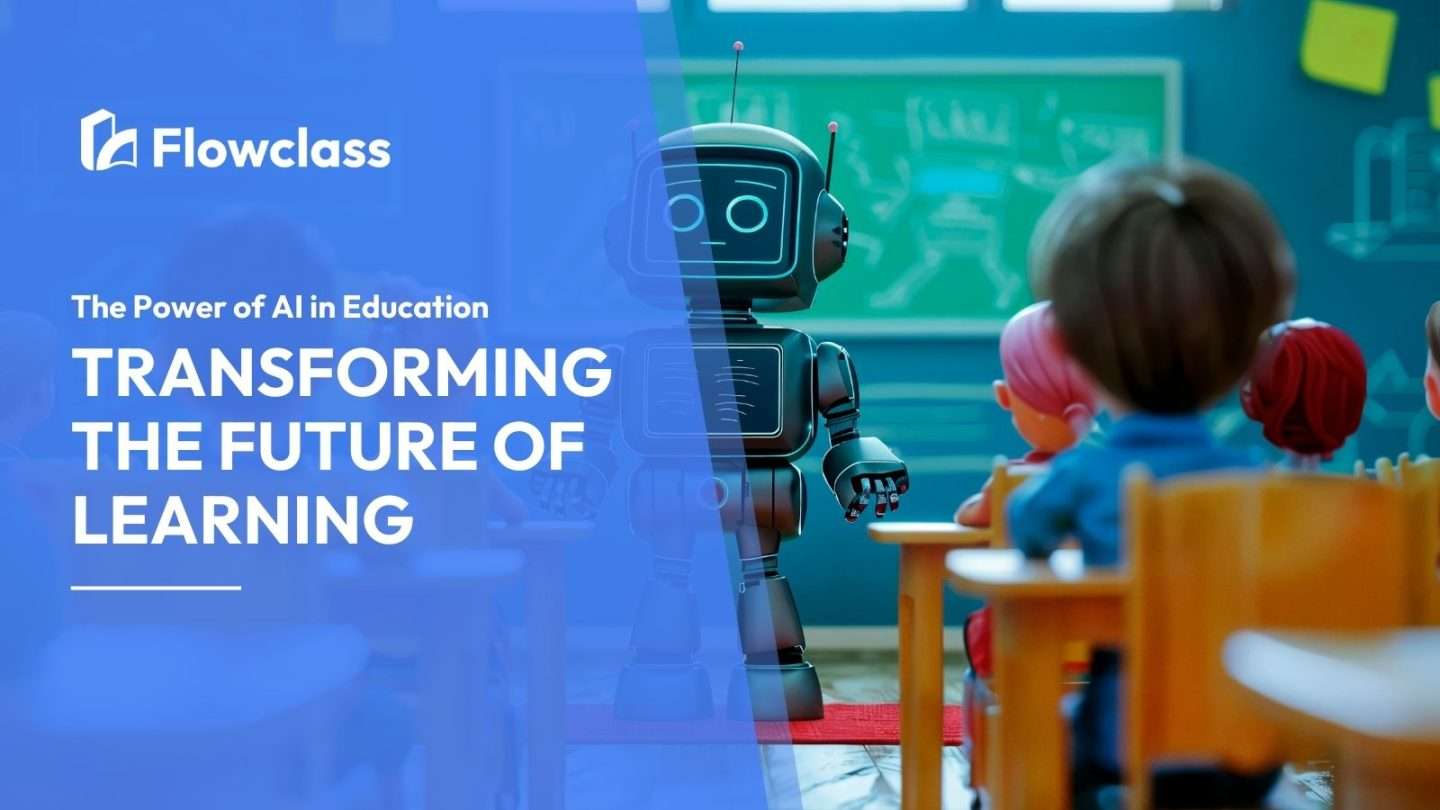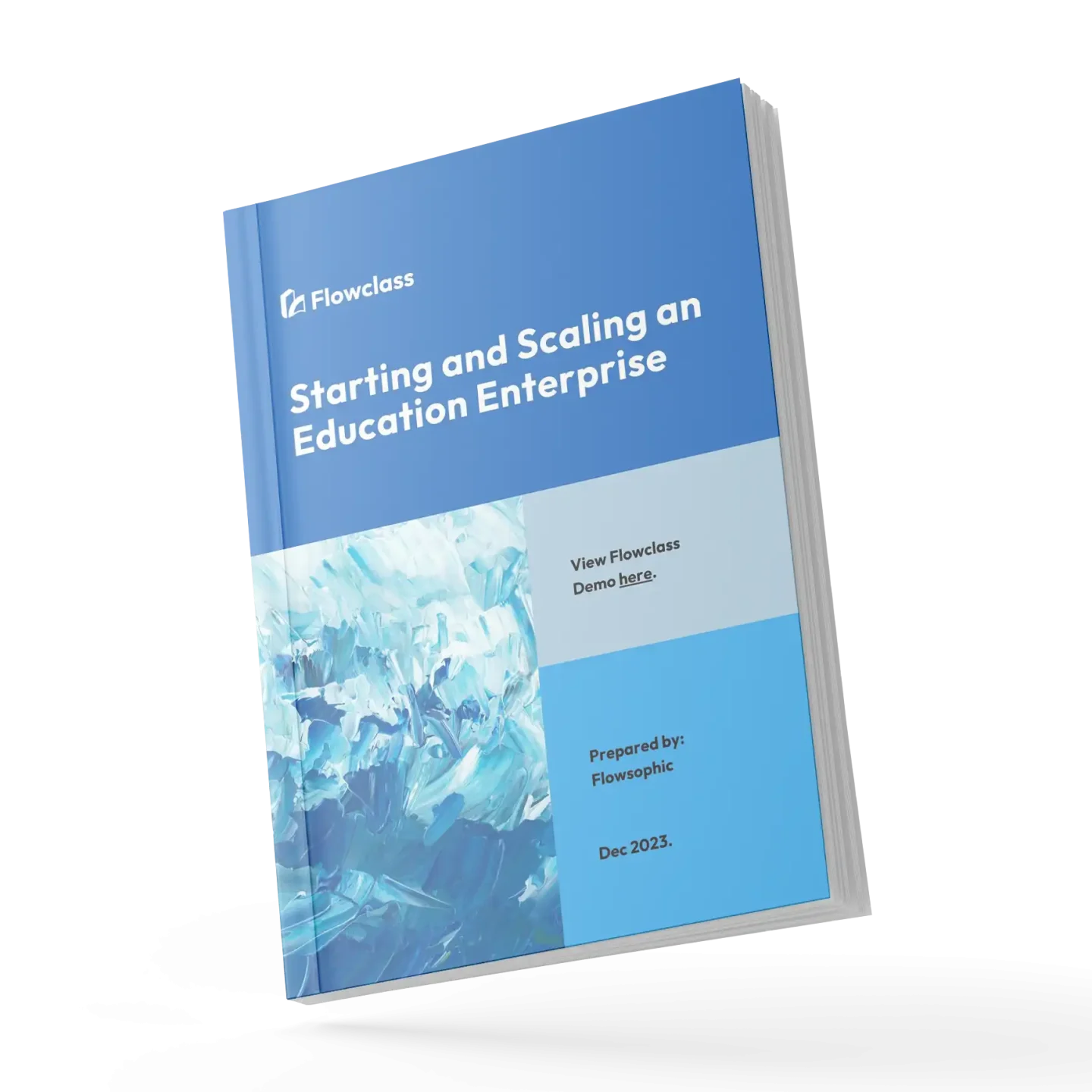In the ever-evolving landscape of education, artificial intelligence (AI) is proving to be a game-changer. With its ability to analyze vast amounts of data, adapt to individual learner needs, and provide personalized feedback, AI is transforming the future of learning in remarkable ways. From virtual tutoring and intelligent chatbots to intelligent content creation and smart classrooms, the power of AI in education is revolutionizing the way we teach and learn.
By leveraging AI technologies, educators can now create personalized learning experiences that cater to each student’s unique strengths and weaknesses. AI-powered systems can analyze student performance data, identify knowledge gaps, and recommend specific learning materials or activities to address those gaps. This level of individualized instruction not only increases student engagement but also promotes better learning outcomes.
Moreover, AI has the potential to democratize education by providing students all over the world access to quality educational resources. With AI-powered platforms and applications, students can learn at their own pace and gain knowledge and skills beyond traditional classroom boundaries.
The power of AI in education is undeniable, and as technology advances, its potential will only grow stronger. With AI as a partner in the learning process, the future of education is promising, inclusive, and limitless.
Advantages of using AI in education

AI has the potential to revolutionize the education sector by offering a wide range of advantages. One of the primary benefits of using AI in education is its ability to personalize the learning experience for each student. AI-powered systems can analyze student data, including their learning styles, pace, and performance, and then tailor the content and delivery methods to meet their individual needs. This personalized approach not only enhances student engagement but also improves learning outcomes, as students are able to learn at their own pace and focus on the areas where they need the most support.
Another significant advantage of AI in education is its potential to democratize access to quality educational resources. With AI-powered platforms and applications, students from all over the world can access high-quality learning materials, virtual tutors, and interactive educational experiences, regardless of their geographic location or socioeconomic status. This can help bridge the educational gap and provide equal opportunities for students, irrespective of their background.
Additionally, AI can assist educators in streamlining their workload and improving their teaching practices. AI-powered tools can automate tasks such as grading, feedback, and lesson planning, freeing up teachers to focus on more meaningful interactions with their students. Furthermore, AI can provide real-time insights and recommendations to educators, helping them identify areas for improvement and tailor their teaching strategies accordingly. This can lead to more effective and efficient teaching, ultimately benefiting the students.
Current applications of AI in education
The integration of AI in education is already underway, with various applications and technologies being implemented in classrooms and educational institutions around the world. One of the most prominent applications of AI in education is virtual tutoring. AI-powered chatbots and virtual assistants can provide personalized, on-demand support to students, answering their questions, guiding them through learning materials, and offering feedback and suggestions. These virtual tutors can be available 24/7, ensuring that students have access to the support they need, whenever they need it.
Another area where AI is making a significant impact is in the creation of intelligent content. AI algorithms can analyze existing educational materials, identify gaps and areas for improvement, and then generate new content that is tailored to the specific needs of individual students or classrooms. This can include customized lesson plans, interactive learning modules, and multimedia resources that engage students and enhance their learning experience.
AI is also being used to enhance the assessment and grading processes in education. AI-powered systems can analyze student performance data, identify areas of strength and weakness, and provide personalized feedback and recommendations for improvement. This can not only save teachers time and effort but also ensure that students receive timely and targeted feedback to support their learning journey.
Enhancing Personalized Learning with AI
One of the most significant advantages of AI in education is its ability to personalize the learning experience for each student. By leveraging AI algorithms and data analytics, educational institutions can create highly customized learning pathways that cater to the unique needs, learning styles, and preferences of individual students.
AI-powered adaptive learning systems can continuously monitor student performance, identify knowledge gaps, and dynamically adjust the content, pace, and delivery methods to meet the student’s evolving needs. This personalized approach not only enhances student engagement but also leads to improved learning outcomes, as students are able to focus on the areas where they require the most support.
Moreover, AI can provide real-time feedback and guidance to students, offering them the support they need when they need it. AI-powered chatbots and virtual assistants can answer questions, provide explanations, and offer tailored recommendations to help students overcome challenges and deepen their understanding of the subject matter. This immediate and personalized support can be particularly valuable for students who may struggle with certain concepts or require additional assistance outside of the traditional classroom setting.
AI-powered tools for educators
AI is not only transforming the student experience but also empowering educators to be more effective in their teaching practices. AI-powered tools can assist educators in a variety of ways, from automating administrative tasks to providing insights and recommendations for improving their teaching strategies.
One of the key benefits of AI for educators is its ability to automate time-consuming tasks, such as grading, feedback, and lesson planning. AI-powered grading systems can analyze student work, provide detailed feedback, and even suggest areas for improvement, freeing up teachers to focus on more meaningful interactions with their students. Similarly, AI-driven lesson planning tools can help educators create customized lesson plans that align with the specific needs and learning styles of their students.
In addition to automating tasks, AI can also provide educators with valuable insights and recommendations to enhance their teaching practices. AI-powered analytics can track student performance, identify patterns and trends, and offer suggestions for tailoring instruction to better meet the needs of the class. This can help educators make more informed decisions, adjust their teaching strategies, and ultimately improve student learning outcomes.
AI in assessment and grading
AI is also revolutionizing the way we approach assessment and grading in education. By leveraging AI-powered systems, educators can streamline the assessment process, provide more accurate and timely feedback, and gain valuable insights into student learning.
One of the key benefits of AI in assessment is its ability to provide automated grading and feedback. AI-powered systems can analyze student work, identify areas of strength and weakness, and provide detailed feedback to help students improve. This can not only save teachers time and effort but also ensure that students receive timely and targeted feedback, which is crucial for their learning and development.
Furthermore, AI can be used to create more personalized and adaptive assessments. AI-powered assessment systems can adjust the difficulty and content of the assessment based on the student’s performance, ensuring that the evaluation accurately reflects the student’s understanding and knowledge. This can lead to more accurate and meaningful assessments, which can inform both teaching and learning strategies.
Potential challenges and ethical considerations in AI education
While the integration of AI in education holds immense promise, it also presents a range of challenges and ethical considerations that must be addressed. One of the primary concerns is the potential for bias and discrimination in AI systems. If the data used to train AI algorithms is biased or incomplete, the resulting systems may perpetuate or even amplify existing inequalities in the education system. This can lead to unfair and biased assessments, recommendations, and decision-making, which can have significant consequences for students.
Another ethical concern is the potential impact of AI on student privacy and data security. As AI-powered systems collect and analyze vast amounts of student data, there is a risk of unauthorized access, data breaches, and the misuse of sensitive information. Robust data privacy and security measures must be put in place to protect student data and ensure that it is used solely for the purpose of enhancing the learning experience.
Additionally, the integration of AI in education raises questions about the role of human teachers and the potential displacement of jobs. While AI can assist educators in various tasks, there is a concern that it may eventually replace certain teaching functions, leading to job insecurity and changes in the teaching profession. It is crucial to address these concerns and ensure that the implementation of AI in education complements and enhances the work of human educators, rather than replacing them entirely.
AI in the future of education

As AI continues to evolve and become more sophisticated, its impact on the future of education is expected to be profound. One of the key areas where AI will play a significant role is in the personalization of learning experiences. AI-powered adaptive learning systems will become increasingly advanced, able to analyze vast amounts of student data and tailor the learning experience to the unique needs and preferences of each student.
Beyond personalization, AI will also play a crucial role in the democratization of education. AI-powered platforms and applications will make high-quality educational resources and learning experiences accessible to students worldwide, regardless of their geographic location or socioeconomic status. This can help bridge the educational gap and provide equal opportunities for students to acquire knowledge and develop essential skills.
Furthermore, AI will continue to transform the role of educators, empowering them with powerful tools and insights to enhance their teaching practices. AI-powered assistants will automate administrative tasks, freeing up teachers to focus on more meaningful interactions with students. AI-driven analytics will provide educators with real-time insights into student performance, enabling them to make more informed decisions and tailor their instruction accordingly.
Implementing AI in educational institutions
The successful implementation of AI in educational institutions requires a carefully planned and executed strategy. One of the key steps is to ensure that the AI systems and technologies being implemented are aligned with the institution’s educational goals and objectives. This involves a thorough assessment of the institution’s needs, the identification of specific use cases for AI, and the selection of appropriate AI solutions that can address those needs effectively.
Another crucial aspect of implementation is the development of a robust data infrastructure. AI-powered systems rely on large amounts of high-quality data to function effectively. Educational institutions must invest in data management systems, data governance policies, and data security measures to ensure that the data being used for AI applications is accurate, secure, and ethically sourced.
Equally important is the training and upskilling of educators and staff to work with AI-powered tools and technologies. Providing comprehensive training and support can help ensure that the institution’s personnel are equipped with the necessary skills and knowledge to effectively utilize AI in their teaching and administrative practices. This can include workshops, tutorials, and ongoing professional development opportunities.
Conclusion and the future of AI in education

The power of AI in education is undeniable, and its impact on the future of learning is both exciting and transformative. By leveraging the capabilities of AI, educational institutions can create personalized learning experiences, democratize access to quality educational resources, and empower educators to be more effective in their teaching practices.
As AI continues to evolve and become more sophisticated, its potential to revolutionize the education sector will only grow stronger. From virtual tutoring and intelligent content creation to adaptive assessment and real-time data analytics, the applications of AI in education are vast and far-reaching.
However, the implementation of AI in education must be accompanied by a thoughtful and responsible approach that addresses the potential challenges and ethical considerations. By ensuring that AI systems are designed and deployed with the utmost care and attention to issues such as bias, privacy, and the role of human educators, educational institutions can harness the transformative power of AI to create a more equitable, inclusive, and effective learning environment for all students.
The future of education is undoubtedly AI-powered, and the possibilities are truly limitless. As we continue to explore and embrace the potential of AI in the classroom, we can look forward to a future where learning is personalized, accessible, and empowering for students and educators alike.
📣 Flowclass utilizes AI writers to help build your course landing page with ease! Try Flowclass today!


